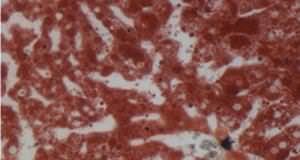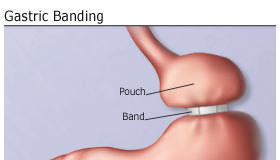Molecules Work The Day Shift To Protect The Liver From Accumulating...
The liver normally makes and stores fat, which is required in moderation for normal body function. However, if the process goes awry, excess fat in the liver can cause major liver damage. In fact, fatty liver is a leading cause of liver failure in the United States, and is often brought on by obesity and diabetes. In turn, the increasing prevalence of these diseases has brought with it an epidemic of liver disease.
Stroke Rising Among Young People
More young people and adults in their 30s and 40s are being hospitalized for stroke, even as stroke rates are dropping in older people, new data show. The findings, reported this week at the American Stroke Association conference in Dallas, may be a sign that that rising rates of obesity, diabetes and high blood pressure among teenagers and young adults are taking a toll. Or it may simply be that physicians have improved their diagnosis and reporting of stroke in young people during the past decade.
What Makes Fructose Fattening? Some Answers Found In The Brain
The dietary concerns of too much fructose is well documented. High-fructose corn syrup has become the sweetener most commonly added to processed foods. Many dietary experts believe this increase directly correlates to the nation's growing obesity epidemic. Now, new research at Oregon Health & Science University demonstrates that the brain -- which serves as a master control for body weight -- reacts differently to fructose compared with another common sweetener, glucose.
Weight Loss Update: FDA Panel Recommends Making Lap-Band Surgery Available To...
The procedure may help more people shed the pounds. But it will also fill the coffers of surgeons, hospitals, and a global specialty pharmaceutical company. About 100,000 people each year have laparoscopic surgery to implant a small, flexible band—the Lap-Band, from Allergan, Inc.—on their stomach. It’s designed to help them lose weight by dramatically limiting their food intake.
The Cost Of Losing Weight
After a run of food-focused holiday get-togethers, many people vow to sign up for a weight-loss program during the early part of the year. How much do weight-loss programs cost? Price quotes from three diet programs, based on a goal of losing 25 pounds, run the gamut from $65 to more than $700, though the price tag on the low end of the spectrum doesn't include the cost of groceries.
More Breaks From Sitting Are Good For Waistlines And Hearts
It is becoming well accepted that, as well as too little exercise, too much sitting is bad for people's health. Now a new study has found that it is not just the length of time people spend sitting down that can make a difference, but also the number of breaks that they take while sitting at their desk or on their sofa. Plenty of breaks, even if they are as little as one minute, seem to be good for people's hearts and their waistlines.
Microbes In Our Gut Regulate Genes That Control Obesity And Inflammation
If you are looking to lose weight in the coming year, you may need help from an unexpected place: the bacteria in your gut. That's because scientists have discovered that the bacteria living in your intestines may play a far more significant role in weight loss and gastrointestinal problems than ever imagined.
Liver Disease A Possible Predictor Of Stroke
People suffering from fatty liver disease may be three times more likely to suffer a stroke than individuals without fatty liver, according to a study by researchers at St. Michael's Hospital and the London Health Sciences Centre. The study is the first to find a link between nonalcoholic fatty liver disease -- a disease characterized by the accumulation of fat in the liver in non drinkers -- and stroke.
Tomatoes Found To Contain Nutrient Which Prevents Vascular Diseases
They are the most widely produced fruit in the world and now scientists in Japan have discovered that tomatoes contain a nutrient which could tackle the onset of vascular diseases. The research, published in the journal Molecular Nutrition & Food Research, reveals that an extracted compound, 9-oxo-octadecadienoic, has anti-dyslipidemic affects.
Obesity Research Targets Brain’s Use Of Fatty Acids
Researchers at the University of Colorado School of Medicine have created a promising new mouse model to study how lipid sensing and metabolism in the brain relate to the regulation of energy balance and body weight.
Fueling The Body On Fat: Critical Tuning Dial For Controlling Energy...
Researchers have found what appears to be a critical tuning dial for controlling whole body energy, according to a new report in the January issue of Cell Metabolism, a Cell Press publication. When energy levels within cells drop, it sets off a series of events designed to increase the amount of calorie-rich dietary fat that the body will absorb.
Remarkable Effects Of Fat Loss On The Immune System
Australian scientists have shown for the first time that even modest weight loss reverses many of the damaging changes often seen in the immune cells of obese people, particularly those with Type 2 diabetes.















